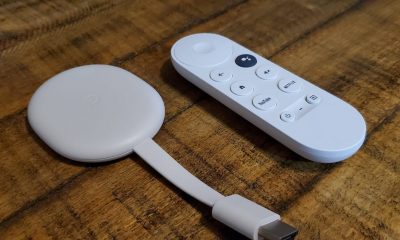Home
Chrome Web Browser Comes to Android Phones, Tablets
By Mike Isaac (http://www.wired.com)
Android is finally getting Chromed out. Google launched a beta version of Chrome for Android smartphones and tablets Tuesday, delivering a mobile version of the popular desktop web browser after a very long wait. Indeed, both Android and Chrome launched more than three years ago, and users have demanded unification ever since.
Why bemoan the long wait? Much like the company’s other products and services, the new Chrome app hooks wonderfully into the Google universe, giving those immersed in desktop Google apps even more incentive to choose Android as their mobile OS. So, naturally, we would hope — nay, expect — that Chrome would be the default browser for the Android OS.
But this hasn’t been the case. Android users have been forced to use a generic, stock browser (unceremoniously named “Browser”) that’s inferior to not only Chrome, but also other browsers available in the Android Market. Dolphin, anyone?
Google had a reason to take its time: It wanted to do Chrome for Android right.
“We didn’t want to just push out Chrome light,” said Sundar Pichai, senior vice president of Google Chrome, in an interview. “Our goal was to get all of Chrome onto Android.”
Which is exactly what Pichai and his team did. It’s a full version of the Chrome browser for Android, still performing as adroitly as ever without losing the features that come in the desktop version.
There are clear perks in using Chrome instead of other Android browsers. If you’re already a desktop Chrome user, your bookmarks will be synced across all your browser versions after signing into your Google account. Even cooler, if you’ve left pages open on your laptop at home, you can access those same open tabs from your mobile Chrome browser. Search terms you’ve entered on your desktop browser also carry over to Chrome for Android, saving precious time and screen tapping.
But most important of all, Chrome is fast. Really freaking fast. When typing in an address into the search bar, for instance, Chrome predicts what page you’re going to visit and starts loading it in the browser background. So by the time you’ve clicked “go,” most of the site has already loaded.
To be sure, the Chrome browser itself is nothing new. It’s been around since 2008, when Google first decided to take on Microsoft, Mozilla and others by casting its lot in the browser wars. The move proved to be a smart one: For nearly the past year and a half, Chrome has slowly increased market share, according to various browser analytics firms’ estimates.
In fact, Chrome actually surpassed Firefox, once the most popular alternative to the dominant Internet Explorer (which still holds about 50 percent of desktop browser share). After Tuesday’s debut for Android devices — of which there are more than 700,000 activations daily — Chrome’s adoption numbers will only escalate.
But the Chrome release raises a number of questions about the new browser app, and the relationship that the Android and Chrome teams have with one another. When the Chrome team first announced it was creating a Chrome-based operating system — later to be known as Chrome OS — it was difficult to resolve how the software wouldn’t come into conflict with Android. After all, Android is the premier operating system for all things mobile (smartphones, tablets). Except, that is, for Google’s version of the netbook: the Chromebook. So the question is, Which OS owns what? Is it Chrome for netbooks, and Android for everything else?
Pichai thinks there’s room enough for both operating systems. The Chrome OS, he says, can be seen “as a different computing paradigm.” It’s one that, “end-to-end, is fully based on the web.”
“Native mobile applications are thriving, but web apps are going to thrive as well,” Pichai said.
While it’s nice to see the two camps playing nicely in Tuesday’s release, it’s not without a caveat. As of Tuesday’s launch, Chrome for Android is only available for smartphones and tablets running Android version 4.0 (a.k.a. Ice Cream Sandwich). At this point, this includes just a handful of phones and tablets. And of course, it’s Chrome “beta” for Android, so don’t expect everything to work perfectly.
Still, Pichai is confident the Chrome team will drop the “beta” title sooner rather than later. “After announcing Chrome the first time, we took it out of beta in three months,” Pichai said. “I’d expect this to happen here in the near future.” And as it stands, after Chrome moves out of beta, the plan is for Chrome to take the place of Android’s default browser permanently.
If you’ve got Ice Cream Sandwich, head to the Android Market to download the app right now.




















Recent Comments